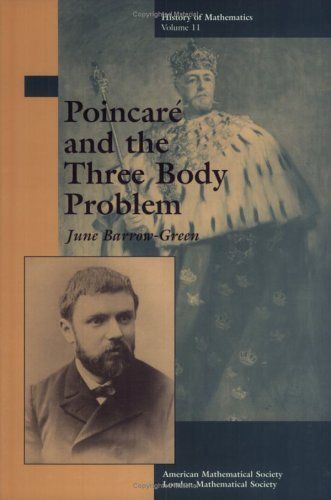
Poincaré and the Three Body Problem
The idea of chaos figures prominently in mathematics today. It arose in the work of one of the greatest mathematicians of the late 19th century, Henri Poincare, on a problem in celestial mechanics: the three body problem. This ancient problem - to describe the paths of three bodies in mutual gravitational interaction - is one of those which is simple to pose but impossible to solve precisely. Poincare's famous memoir on the three body problem arose from his entry in the competition celebrating the 60th birthday of King Oscar of Sweden and Norway. His essay won the prize and was set up in print as a paper in Acta Mathematica when it was found to contain a deep and critical error.In correcting this error Poincare discovered mathematical chaos, as is now clear from Barrow-Green's pioneering study of a copy of the original memoir annotated by Poincare himself, recently discovered in the Institut Mittag-Leffler in Stockholm. ""Poincare and the Three Body Problem"" opens with a discussion of the development of the three body problem itself and Poincare's related earlier work. The book also contains intriguing insights into the contemporary European mathematical community revealed by the workings of the competition. After an account of the discovery of the error and a detailed comparative study of both the original memoir and its rewritten version, the book concludes with an account of the final memoir's reception, influence and impact, and an examination of Poincare's subsequent highly influential work in celestial mechanics.